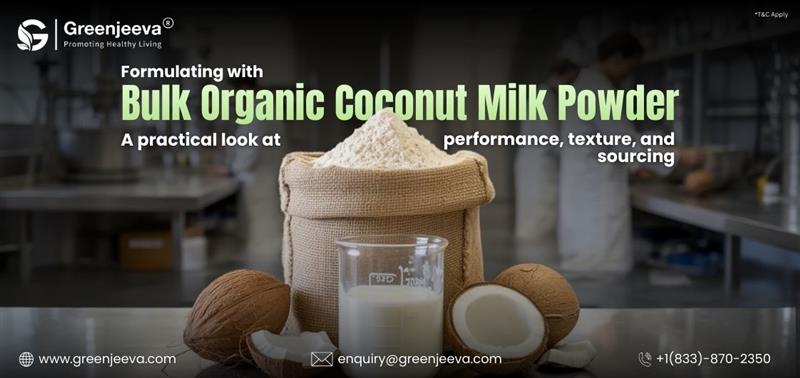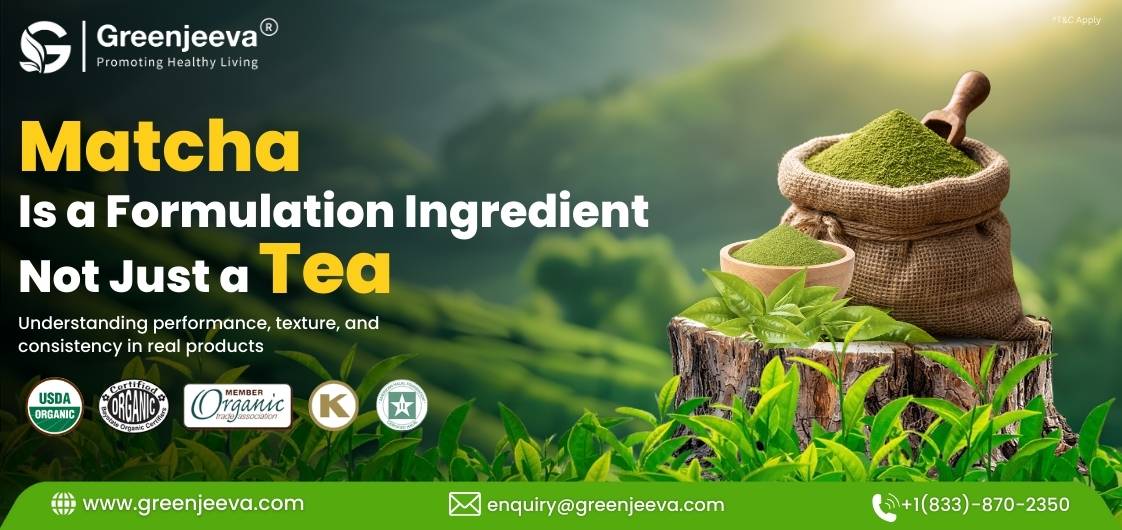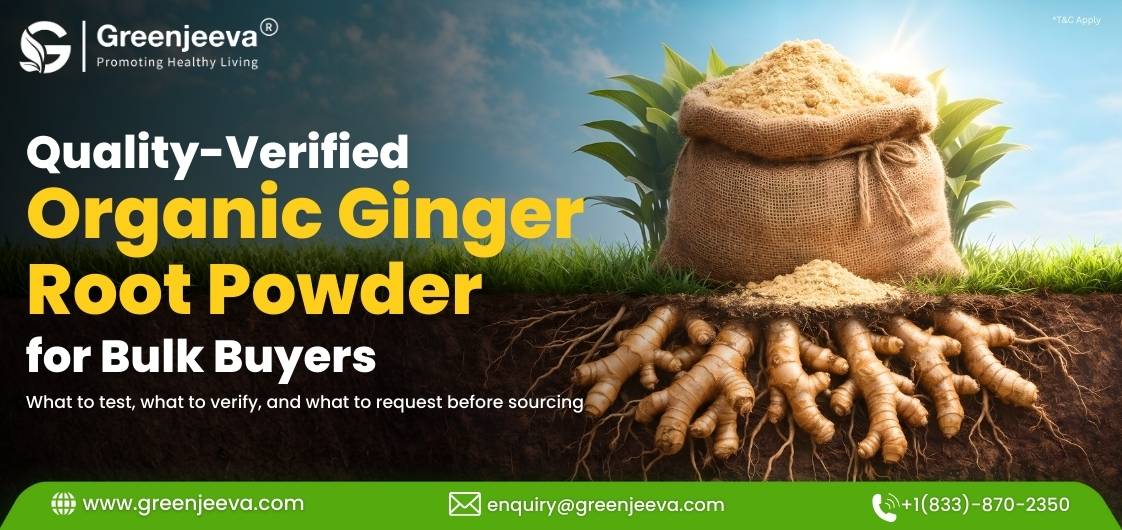Vitamin B Complex: Essential Nutrient Sources for Food & Beverage Fortification

The Vitamin B complex family—a group of eight water-soluble vitamins—is essential in supporting critical bodily functions, including energy metabolism, brain health, and immune support. As demand for health-focused products soars, Vitamin B complex has become a highly sought-after ingredient in food and beverage fortification, especially within the B2B sector. For businesses looking to meet consumer expectations for natural and effective health benefits, sourcing ingredients with Vitamin B complex can be a strategic move to enhance product appeal and marketability.
Why Vitamin B Complex is a High-Demand Ingredient in Fortification
With consumers increasingly looking for products that support energy, immunity, and mental well-being, the Vitamin B complex is an ideal choice for fortifying foods and beverages. Each B vitamin plays a distinct yet interrelated role:
B1 (Thiamine): Essential for energy production and nerve function.
B2 (Riboflavin): Supports cellular function and energy metabolism.
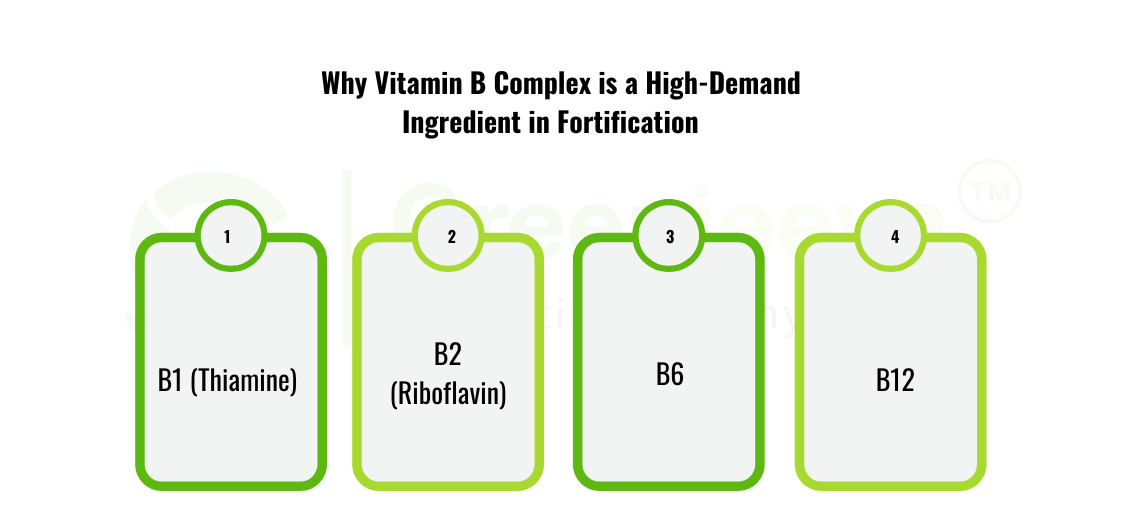
B6: Plays a key role in cognitive development, mood regulation, and immune health.
B12: Important for blood formation and neurological function.
Since B vitamins are not stored in the body, a consistent intake is necessary to maintain optimal health. This is where food and beverage fortification becomes essential, particularly for consumers with dietary restrictions or preferences that may limit their intake of these critical nutrients.
Natural Sources of Vitamin B Complex for Fortification
In response to growing demands for natural and clean-label products, manufacturers are increasingly seeking plant-based sources of Vitamin B complex to incorporate into functional foods and beverages. Here are three promising sources:
Whole Grains: Often lauded for their high fiber content, whole grains are also rich in several B vitamins, including thiamine, riboflavin, and niacin. Ingredients like wheat germ, brown rice, and oats offer versatile applications in fortified snacks, cereals, and bars.
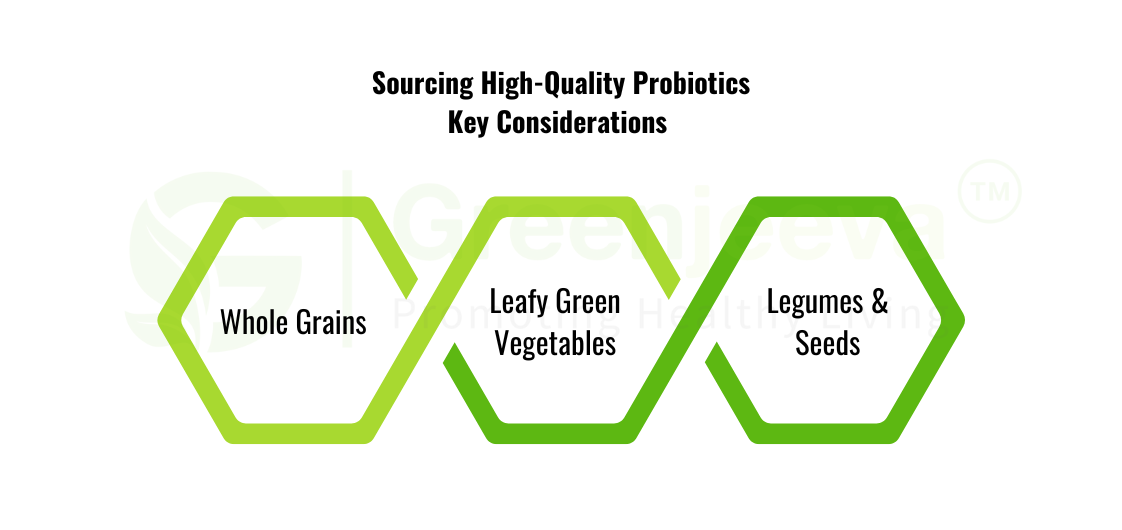
Leafy Green Vegetables: Leafy greens, particularly spinach, kale, and Swiss chard, provide B vitamins and are increasingly used in powdered form for beverages and smoothie mixes. These vegetables are particularly high in folate (B9), which is vital for cell growth and DNA formation.
Legumes and Seeds: Beans, lentils, and seeds (such as sunflower and flaxseed) are excellent sources of Vitamin B complex. They can be integrated into protein bars, baked goods, and functional food powders, adding a nutrient-dense option for consumers interested in plant-based diets.
Targeted Benefits of B Vitamins in Health Products
In B2B manufacturing, aligning product benefits with specific health outcomes can significantly enhance consumer interest. Here are a few targeted benefits of B vitamins that make them ideal for fortification:
Cognitive and Mental Health: B6, B9, and B12 are well-documented for supporting cognitive function and mood regulation, which appeals to consumers seeking natural solutions for mental wellness.
Energy Metabolism: B vitamins like B1, B2, and B3 (niacin) are instrumental in converting food into energy, making them a natural fit for sports and energy drinks.
Immunity Support: With immune health top of mind for many consumers, B6 and B12, known for their roles in supporting immune function, are crucial for fortified products designed to strengthen the body’s defenses.
The Market Advantage of Fortifying with Vitamin B Complex
The Vitamin B complex aligns well with the clean-label and natural sourcing movement, making it an attractive ingredient for manufacturers seeking to boost the health appeal of their products. Market reports indicate that consumers are willing to pay a premium for products that are naturally fortified, particularly when they feature functional health benefits backed by research. B2B clients can capitalize on this trend by incorporating Vitamin B complex into their products, whether in the form of whole foods, powdered ingredients, or extracts.
In addition, companies that offer fortification solutions with transparency around sourcing and nutritional content are positioned to build trust and brand loyalty among both retail partners and end consumers.
Final Thoughts
Vitamin B complex is more than just a set of essential nutrients it’s a versatile solution for fortifying food and beverages to meet the growing consumer demand for products that support holistic wellness. For B2B companies, sourcing natural and effective Vitamin B ingredients from whole grains, leafy greens, and legumes offers a market-ready solution to the need for clean-label, health-forward products. As interest in fortified, functional foods continues to rise, leveraging Vitamin B complex could be the next strategic move in capturing health-conscious consumers and building a competitive edge in the industry.
**The Food and Drug Administration has not evaluated these statements. This product is not intended to diagnose, treat, cure, or prevent any disease.**


